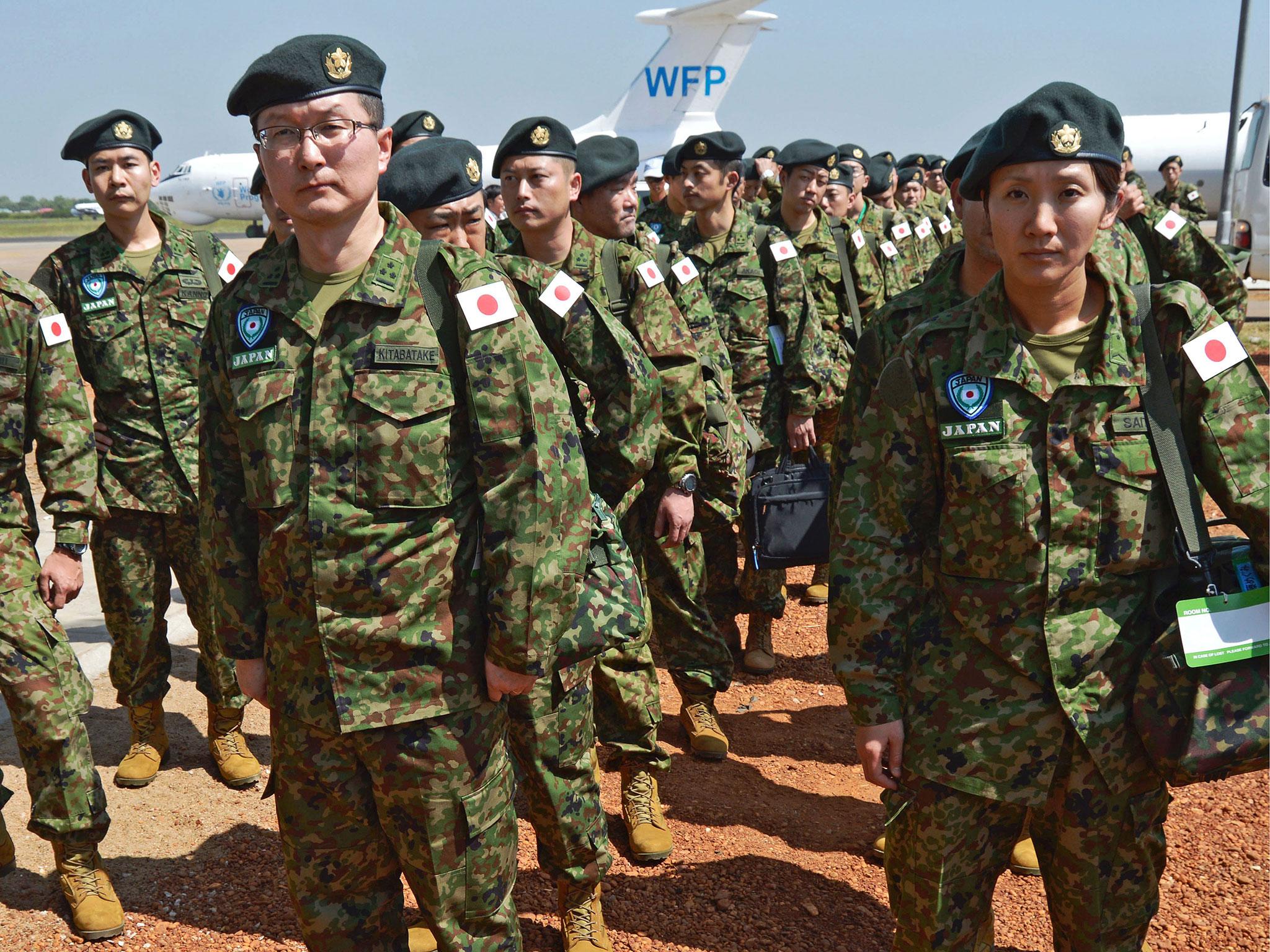Japan deploys troops overseas for first time since World War II
Peacekeepers will have ability to use force to protect civilians and UN staff

Your support helps us to tell the story
From reproductive rights to climate change to Big Tech, The Independent is on the ground when the story is developing. Whether it's investigating the financials of Elon Musk's pro-Trump PAC or producing our latest documentary, 'The A Word', which shines a light on the American women fighting for reproductive rights, we know how important it is to parse out the facts from the messaging.
At such a critical moment in US history, we need reporters on the ground. Your donation allows us to keep sending journalists to speak to both sides of the story.
The Independent is trusted by Americans across the entire political spectrum. And unlike many other quality news outlets, we choose not to lock Americans out of our reporting and analysis with paywalls. We believe quality journalism should be available to everyone, paid for by those who can afford it.
Your support makes all the difference.Japan has deployed troops to South Sudan in their first overseas deployment since the end of World War II.
Tokyo sent 350 soldiers to the UN mission in South Sudan, where they will help build infrastructure in the capital, Juba.
For the first time since the country adopted a pacifist stance more than 70 years ago, the peacekeepers will have the ability to use force to protect civilians, UN staff and themselves.
There are also plans for them to guard UN bases, which have been attacked during the country's civil war.
Japan's constitution, drafted under US direction after the war, forbids the use of force in settling international disputes, but the government has reinterpreted the constitution to allow Japanese troops to use force in some situations.
Approved by the Japanese legislature in 2015, the expanded capacity to use force was opposed by some in Japan who feared that it could entangle the country's military in an overseas conflict and were concerned it violates Japan's anti-war constitution.
However, Japanese Prime Minister Shinzo Abe argued that the broader military powers give Japan the ability to respond to growing threats, including China's growing military assertiveness and North Korea's nuclear ambitions.
South Sudan seceded from Sudan in 2011 — a development greeted at the time with mass celebrations in the oil-producing state.
Aid agencies and world powers promised support, but fighting, mostly along ethnic lines, erupted in 2013 after President Salva Kiir sacked his longtime political rival Riek Machar from the post of vice president.
A peace deal, agreed under intense international pressure and the threat of sanctions, brought Mr Machar back to the capital in April, but he fled after more clashes and the violence has continued.
Additional reporting by agencies
Join our commenting forum
Join thought-provoking conversations, follow other Independent readers and see their replies
Comments